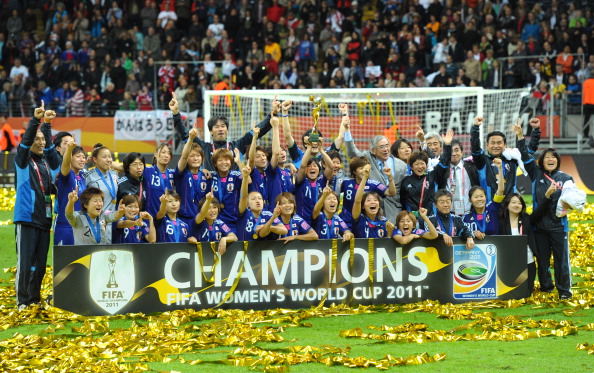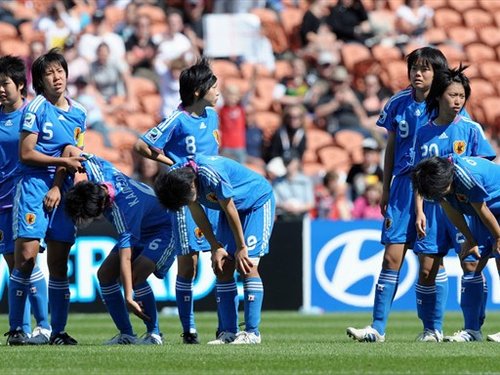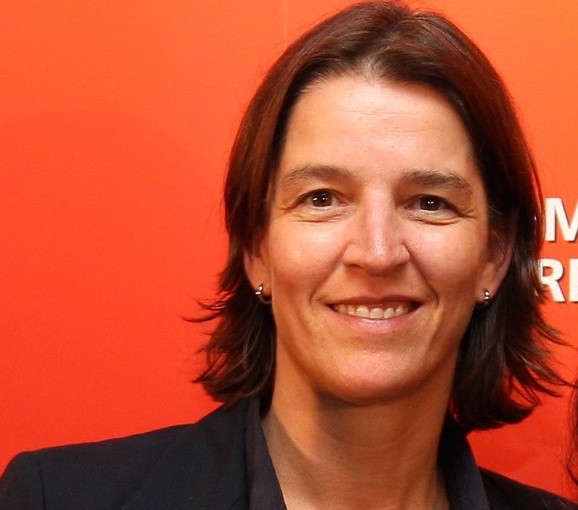By David Gold
October 20 – FIFA’s head of women’s competitions, Tatjana Haenni, believes that women’s football can replicate the success of women’s tennis and compete on a par with the men’s game in the future.
Haenni will be discussing the women’s game and FIFA’s involvement in promoting the sport next month at the International Football Arena’s (IFA) thirteenth conference in Zurich on November 7-8.
Speaking to insideworldfootball, Haenni said that she believes the long-term future of the women’s game is looking particularly promising.
“Men’s football is the most popular sport worldwide and the World Cup is huge in all areas,” she said.
“Where can women’s football go?
“In a similar direction I think.
“Women’s football is at the early stage of its development.”
“Women’s tennis is comparable to men’s tennis in terms of prize money, number of people in stadia and TV, so if [they] can be similar why can’t they be on the football side?”

This year saw the Women’s World Cup take place in Germany, and it was a great success for FIFA, with the final drawing 73,680 supporters to the Olympiastadion in Berlin to see Japan lift the title for the first time, with a 3-1 win on penalties against the USA, after the game finished 2-2 following extra time.
Though the attendance for the competition was similar to previous World Cups, Haenni believes that this year’s tournament was a significant success.
“Maybe it was not the biggest number in terms of statistics, but it was overall a great success,” she said.
“The ticket prices were market prices, there were no cheap or free tickets, the spectators reacted and bought [them].
“This confirmed that women’s football has reached a high level of acceptance in society, to see so many people in the stadium and in fan miles, cities and [watching] on TV.
“Those numbers are incredible, a huge success for women’s football.”
The next World Cup, taking place in Canada in 2015, will see 24 teams competing for the first time, increasing from the current 16.
“We’re pleased with this increase as it will improve development in all confederations,” said Haenni.
“This means teams in each confederation will see [more of] a chance to qualify so will maybe prepare better so will have some side effects.”
Haenni says that key to the growth of the World Cup and women’s game in general have been the Under 17 and Under 20 World Cups, both introduced in the last decade.
“I think the introduction of under-17 and 20 World Cups is a key success of women’s football worldwide, the number of teams participating is amazing,” she said.
“This year [the World Cup] was really very balanced, with strong teams and I think that is a reflection of having under-17 and Under 20 World Cups, giving young players the chance to participate in higher level competitions.
“Once you have these competitions you have camps, you play friendly matches, so that makes young girls better players when they grow up.”

As FIFA’s head of women’s competitions, these tournaments are Haenni’s responsibility, but away from the big events does she think we will see a female manager taking charge of a men’s football team in the future?
“Absolutely,” she says.
“The female managers we have today clearly have the knowhow to coach a team and every coach has talents, some better with adults, youth, women or boys.
“It’s a matter of having someone giving them the opportunity and using them as the coach.
“It’s a social question maybe, no one asks that question if a man is coaching a women’s national team.
“The best person should coach the best team.
“It doesn’t matter if it is a woman coaching the men’s team or the other way around.
“It just needs time and to be prominent.
“Names will be more in the media, get recognition and one day maybe there will be a [women’s] coach.
“If you talk to those great women’s coaches they say they could coach a men’s’ team but some don’t want to because they want to help develop women’s football.”
Haenni also believes that time is all that is needed for the women’s game to grow.
“The men’s World Cup is so big women’s can’t compare.
“We need time, women’s football needs to grow, it is its own sport [and] needs to develop over the years.”
IFA Zurich 2011 takes place on November 7 and 8 at the Dolder Grand Hotel, Zurich.
To find out how to attend please click here.
Contact the writer of this story at zib.l1751734001labto1751734001ofdlr1751734001owedi1751734001sni@d1751734001log.d1751734001ivad1751734001

